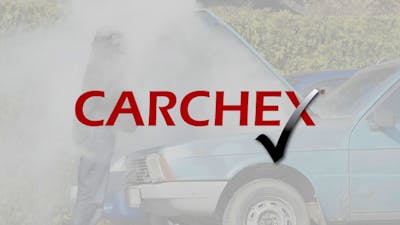What To Do If Your Car Is Rattling
Whether your vehicle is new or a beloved classic, nothing can spoil your driving experience quicker than a rattling sound. A tap, tap, tap, tap, buzz, buzz, buzz, and a clunk, clunk, clunk can make you want to scream. But don't panic. Many rattles, clunks, buzzes, and taps can be identified and resolved.
Popular Warranty Providers
Identify The Source of the Noise
The first step in resolving a rattle is to identify its origin. This is trickier than it sounds. Due to a glitch in the matrix, sound inside a car is often hard to locate. Noises seem to bounce around, and often the location of a rattle is not where your ears say it is coming from. This is where a pal can be handy. Have her sit inside and listen from the passenger seat and then both sides of the rear seats. This is often a good way to find out where the sound emanates from.
Check Easy Things First
Regardless of where you think the sound is originating, empty your glove box, center console, and all the map pockets and door storage compartments. Why not run a damp cloth around the inside. A penny leaning up against a hard inner door surface is enough to spoil the serenity of a quiet cabin. I can identify that sound in an instant.
Next, open up your trunk or cargo area. Take out everything you can. Your flat tire tools, your flashlights, your jack, anything not bolted to the car. Ensure the cargo cover is not the source by removing that as well unless you would damage it by doing so.
The last step is not easy, but it can be a big help. Remove your spare, inflate it if need be, and return it to its nest. Ensure it is tightened down by whatever method the car uses. Push it, bang it with your fist, and listen for any noises.
Pop your hood. Open it up, and before you hold it up with the little hold-up stick, look at the stick. Is it in its holder properly? Or was it instead just laid down when the hood was last closed? A hood hold-up stick can be a nasty rattle if it isn't in its little holder properly.
With the vehicle off and cold, look closely around the engine compartment. Is anything hanging or looking out of place? If so, ask a mechanic what to do.
Inspect All Your Seat Belts Closely
Seat belts can be a source of a car rattle. One way to quickly eliminate them from your list is to just buckle them all up, including that one hidden up in the ceiling of your SUV or crossover. That hidden fifth-passenger belt is a rattle waiting to happen. Consult your manual if you are not sure what we mean (or see the image).
Are any of the unused seat belts twisted? You know what to do. In many cars, the outboard belts have little holders that we ignore. Use them and see if it helps.
You Found the Noise - Now What?
Once you have taken everything out and secured your spare tire, try driving the car and see if the noises are still happening. If so, it’s time for some more steps. If you do find the source of the issue - rejoice! One way to silence a rattle in a cargo area or console is to use a no-slip carpet liner. You can find this stuff at your local Dollar Store, Walmart, or on Amazon. It feels rubbery and is inexpensive. You can cut it to size with scissors. Buy a roll, cut some to size, and wrap your noisy items in it. Why not drop some in the glove box and console while you're at it?
The Not-So-Easy Things
If all of these things have not helped, there are two common sources of in-cabin noise that you can try to resolve. The first is your cabin air filter. In almost every vehicle, it is located behind the glove box. You can watch a YouTube video on how to access it by dropping down the glove box. You can find a replacement for about $20 or less on Amazon. Change your cabin air filter and ensure that when you put the glove box back in position, you don't forget the little damper arm that gets reattached. That little bugger can rattle.
The last step is to consider any aftermarket thing in your vehicle. Did you replace the stock audio system? Do you have any sort of dash cam, aftermarket microphone, GPS antenna, or SatRad antenna installed? All of these and their accompanying wiring may be the source. Installers often do a great job taping any wires to the vehicle structure, but over time that tape can dry out and let go. Solving this issue may require the help of a mechanic or your car audio pro.
It Wasn’t The Easy Things - Do This Next
If the above long list of potential rattles wasn’t the source, it’s time to simply identify the area in the vehicle where the sound seems to come from. Do your best and consult a mechanic. Exhaust systems, suspension components, and powertrain parts can all rattle. Your mechanic will do a test drive and then put the vehicle on the lift. A strong shake will often reveal the culprit.
Read more on the topic of Owning a Car here.













